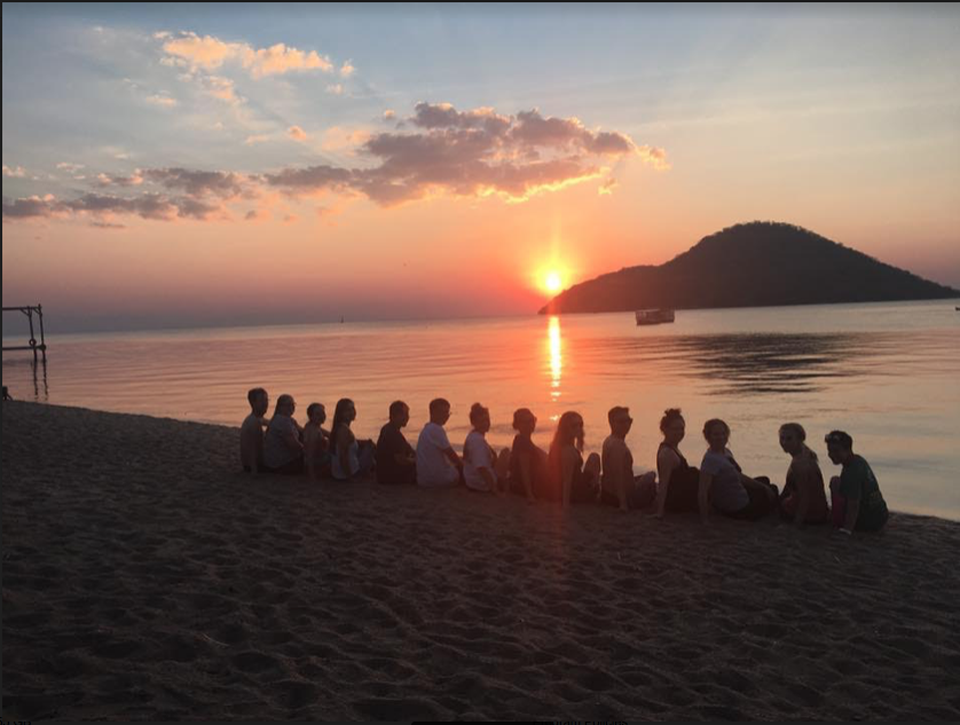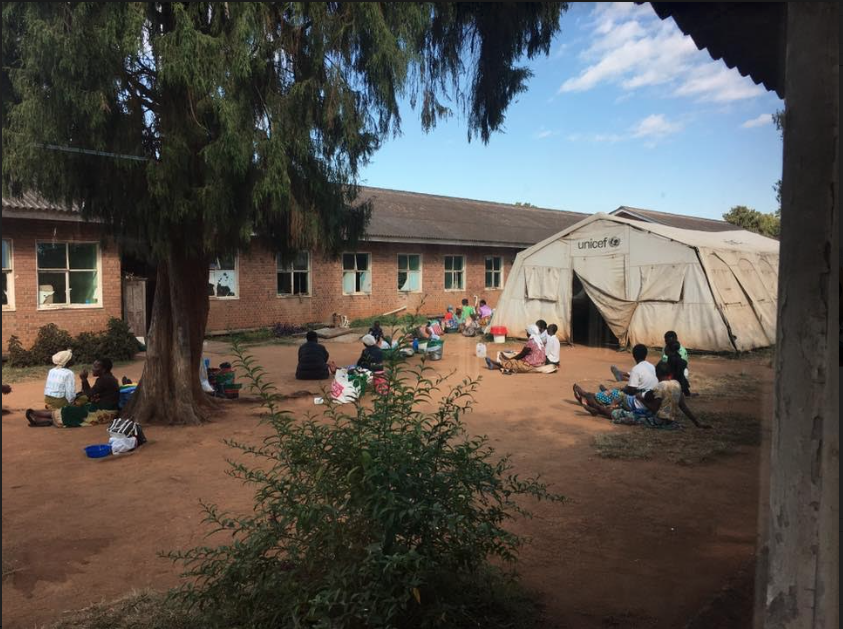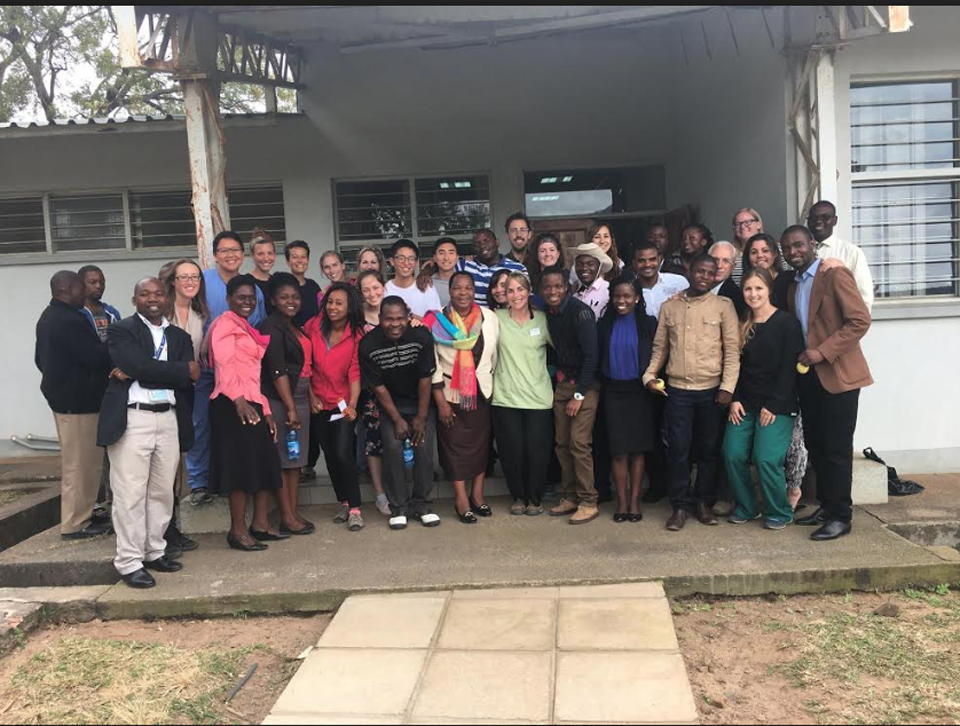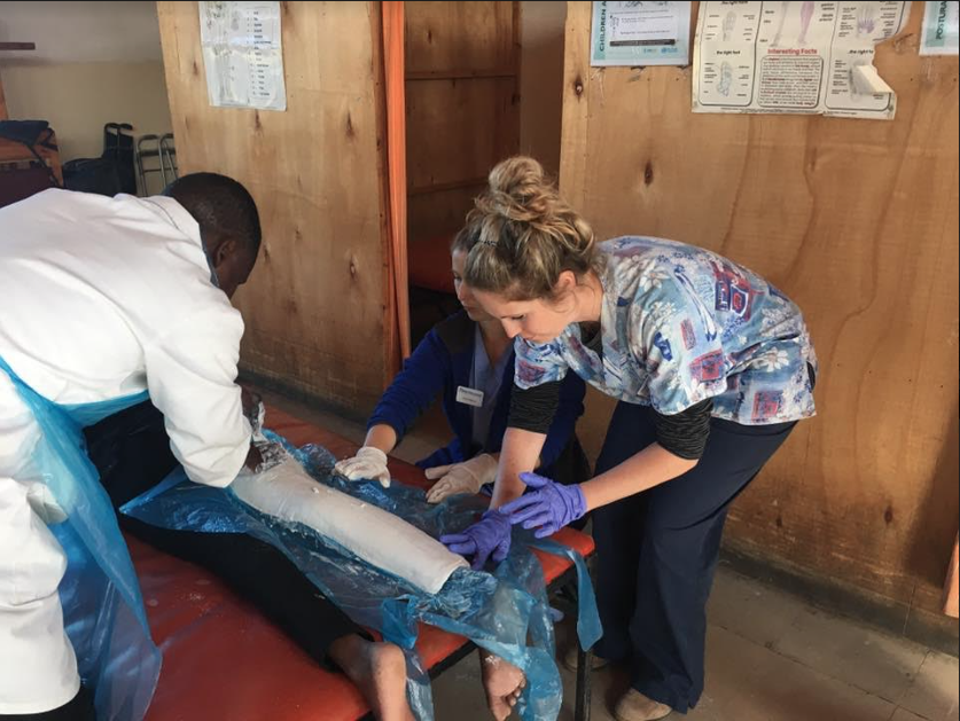CSUN Prof Helps People Around the Globe Through Physical Therapy
The conditions of a country tell a story. In Blantyre, Malawi, they tell a hard story. In the African nation, extreme poverty leads to unsafe drinking water and inadequate medical care that’s far from adequate. With a scarcely resourced local police force, the nights are unsafe. Locals who can afford to live in a house in the city must barricade themselves inside their homes with chains and metal doors. These conditions would scare off a typical visitor, but for Janna Beling, they serve as motivation to improve the access to healthcare through physical therapy.
Over the years, Beling has volunteered extensively overseas in countries such as Suriname, Vietnam and Malawi for a total of more than 100 days each, with the organization Health Volunteers Overseas (HVO).
“In Malawi, 20 percent of the population does not have access to safe drinking water – we boiled our water or drank bottled water,” Beling said. “Healthcare does not meet international standards in Malawi, and most people die from communicable diseases. Malawi has one of the highest prevalence of HIV/AIDS in the world, and this is the undercurrent affecting rehabilitation. Most of our patients in the 80-bed wards are in rehab for tuberculosis of the spine, meningitis, stroke, spinal-cord injury, burns and post-natal complications. Although we prepare for the experience during the semester course preceding the trip, it is an extreme culture shock for the students who come with me – especially having to be locked behind a walled compound and multiple doors at night.”
In the early 2000s, Beling began volunteering regularly with HVO, which is staffed by volunteer physical therapists, physicians, nurses and dentists who are committed to improving global health through education. Eventually, Beling became director of the organization’s physical therapy program at the Da Nang Orthopedic and Rehabilitation Hospital in Vietnam for HVO. In 2017, she became the director of the Physical Therapy Program at Da Nang University for HVO as well. Beling is also a professor and chair of the Department of Physical Therapy at California State University, Northridge.
Beling, recently was awarded the Golden Apple Award for her contributions to the nonprofit organization Health Volunteers Overseas (HVO).
The organization gives the Golden Apple Award annually to a volunteer who demonstrates commitment to improving global health and making a positive impact at HVO project sites across the globe.
For more than 17 years, Beling has been connected to HVO. Every year, she takes CSUN doctoral physical therapy (DPT) students abroad to volunteer as part of their senior capstone for the “physical Therapy in an International Setting” elective.
“Although we do pro bono physical therapy work in Los Angeles during the semester, we spend three weeks in a country that has a critical shortage of physical therapists at the end of the course. We work to provide education and training to local physical therapists. By improving their knowledge and skills, we improve the quality and availability of care,” Beling said. “Before we go to these countries, everyone needs vaccine shots for cholera, hepatitis A and B, typhoid, yellow fever, anti-malarials and other non-vaccine preventable diseases that we don’t have to worry about in the West like African Sleeping Sickness.”
Beling’s goal has been to improve the health welfare of communities in African and Southeast Asian countries and to help make the rehabilitation programs sustainable and self-sufficient.
“Since my first trip a long time ago, I am relieved to say that we are making a difference in a lot of these countries,” Beling said. “HVO is an amazing organization and I am inspired by the hard work HVO volunteers have done around the world with our partners overseas. It is a heartwarming experience to know that patient outcomes are improved by empowering local physical therapists through educations and training and thereby strengthening the healthcare system. This is why I’ve dedicated so much time and effort to this organization. And I want our CSUN DPT students to experience the impact of pro bono work, too, both here and abroad.”
In Malawi, life expectancy is less than 60 years. Beling’s dream has been to improve this directly through better access to health services, she said. But there are also cultural challenges, she noted.
“Along with the benefits of global health [volunteer] participation come ethical challenges,” Beling said. “These include respecting different cultural norms, avoiding unintended harms, protecting privacy, working within one’s scope of practice, and managing resource constraints and priority settings. It is important to have long-term sustainable partnerships in global communities in order to have positive long-term health effects.”
For more information on the Health Volunteers Overseas organization, please visit their website.





 experience
experience